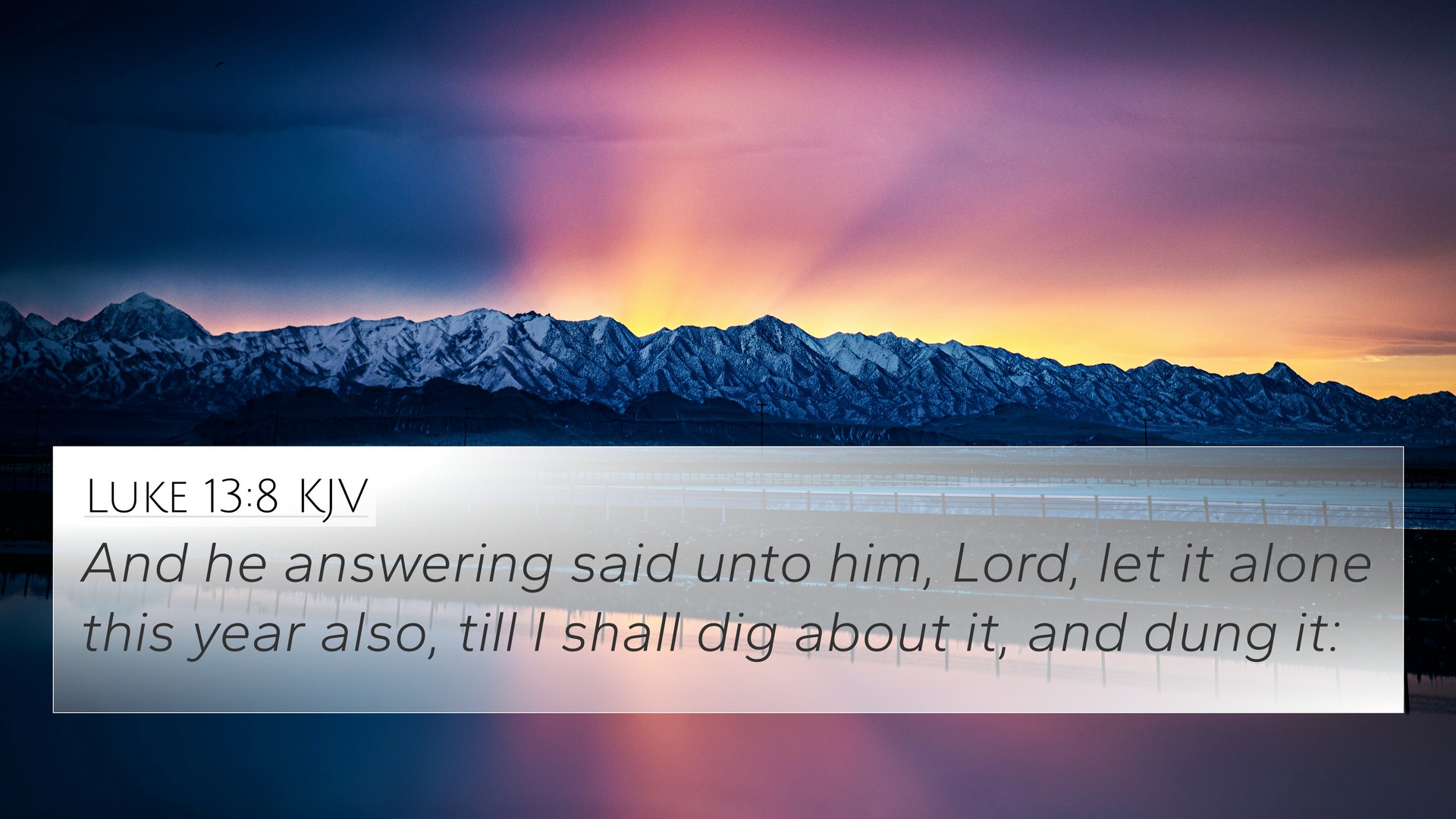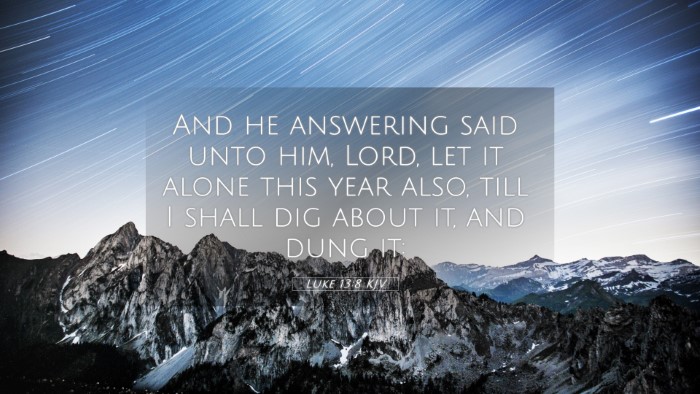This section features a detailed cross-reference designed to enrich your understanding of the Scriptures.
Below, you will find carefully selected verses that echo the themes and teachings related to Luke 13:8 KJV. Click on any image to explore detailed analyses of related Bible verses and uncover deeper theological insights.
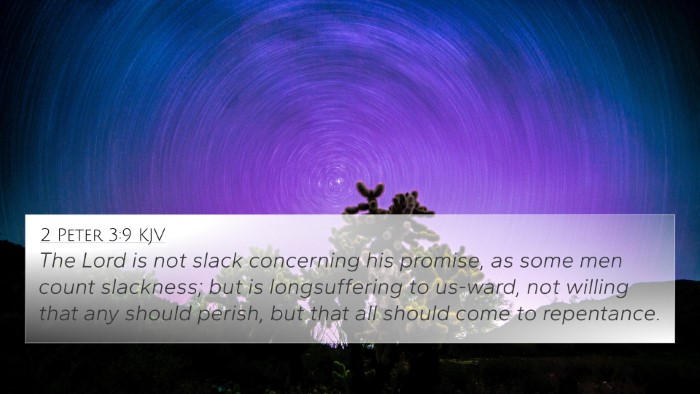 2 Peter 3:9 (KJV) »
2 Peter 3:9 (KJV) »
The Lord is not slack concerning his promise, as some men count slackness; but is longsuffering to us-ward, not willing that any should perish, but that all should come to repentance.
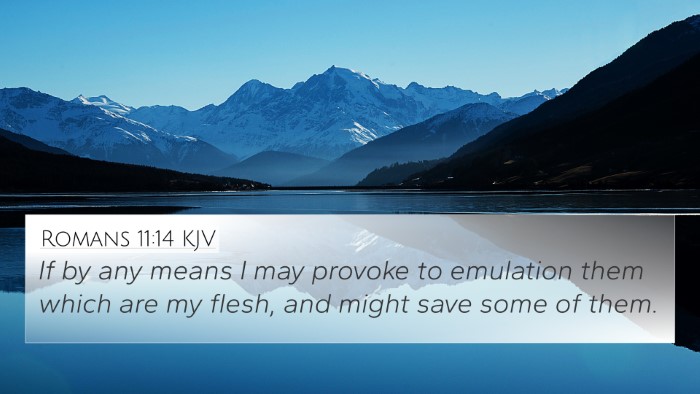 Romans 11:14 (KJV) »
Romans 11:14 (KJV) »
If by any means I may provoke to emulation them which are my flesh, and might save some of them.
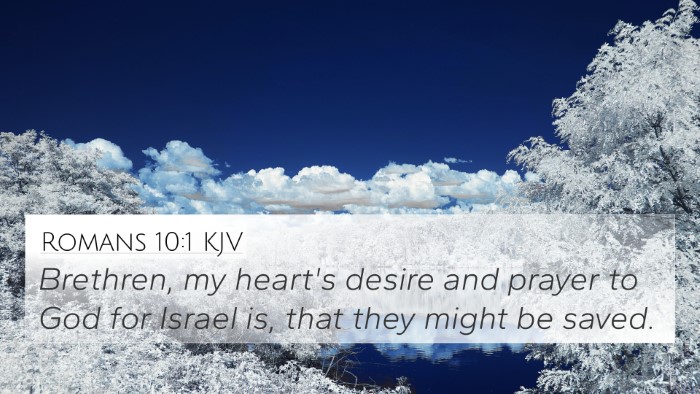 Romans 10:1 (KJV) »
Romans 10:1 (KJV) »
Brethren, my heart's desire and prayer to God for Israel is, that they might be saved.
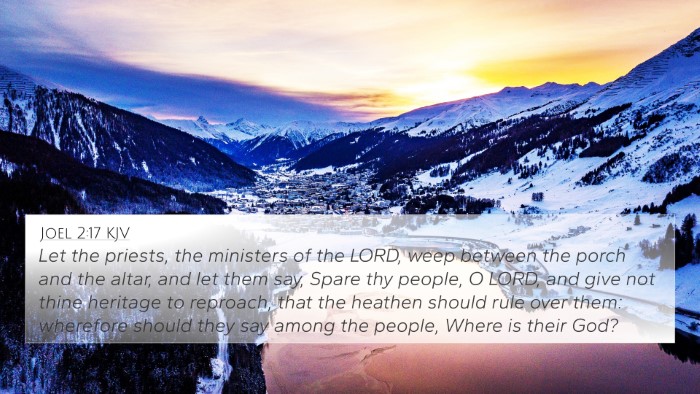 Joel 2:17 (KJV) »
Joel 2:17 (KJV) »
Let the priests, the ministers of the LORD, weep between the porch and the altar, and let them say, Spare thy people, O LORD, and give not thine heritage to reproach, that the heathen should rule over them: wherefore should they say among the people, Where is their God?
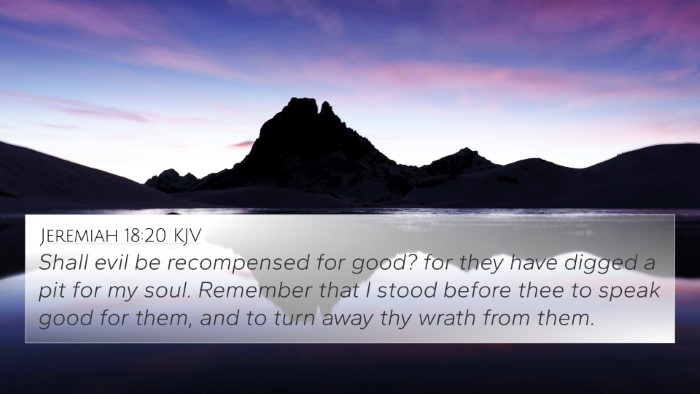 Jeremiah 18:20 (KJV) »
Jeremiah 18:20 (KJV) »
Shall evil be recompensed for good? for they have digged a pit for my soul. Remember that I stood before thee to speak good for them, and to turn away thy wrath from them.
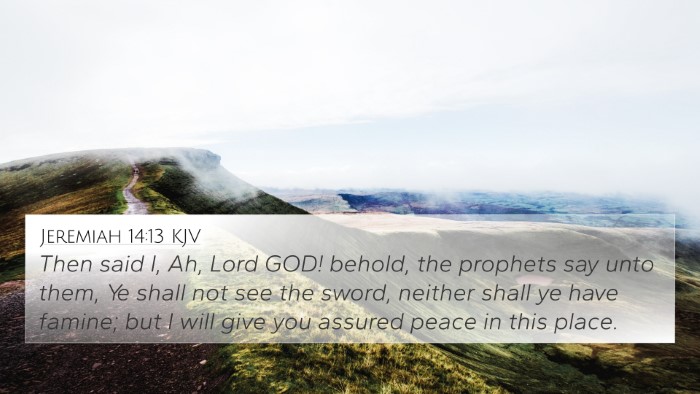 Jeremiah 14:13 (KJV) »
Jeremiah 14:13 (KJV) »
Then said I, Ah, Lord GOD! behold, the prophets say unto them, Ye shall not see the sword, neither shall ye have famine; but I will give you assured peace in this place.
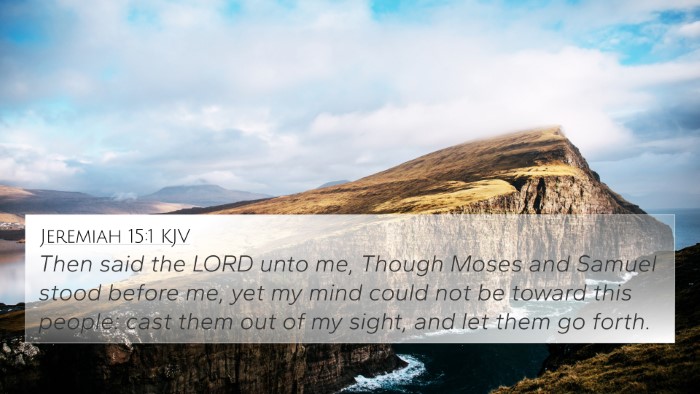 Jeremiah 15:1 (KJV) »
Jeremiah 15:1 (KJV) »
Then said the LORD unto me, Though Moses and Samuel stood before me, yet my mind could not be toward this people: cast them out of my sight, and let them go forth.
 Psalms 106:23 (KJV) »
Psalms 106:23 (KJV) »
Therefore he said that he would destroy them, had not Moses his chosen stood before him in the breach, to turn away his wrath, lest he should destroy them.
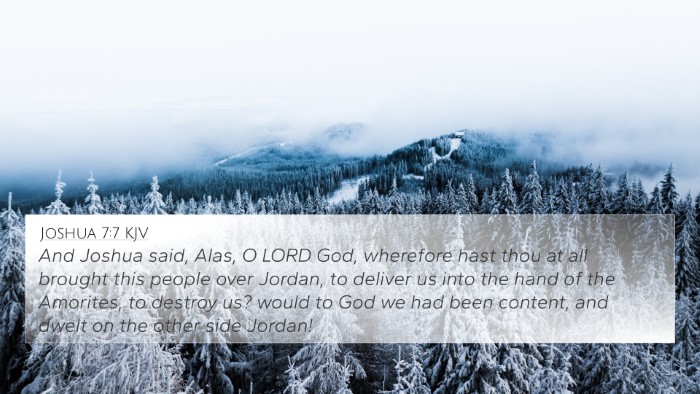 Joshua 7:7 (KJV) »
Joshua 7:7 (KJV) »
And Joshua said, Alas, O LORD God, wherefore hast thou at all brought this people over Jordan, to deliver us into the hand of the Amorites, to destroy us? would to God we had been content, and dwelt on the other side Jordan!
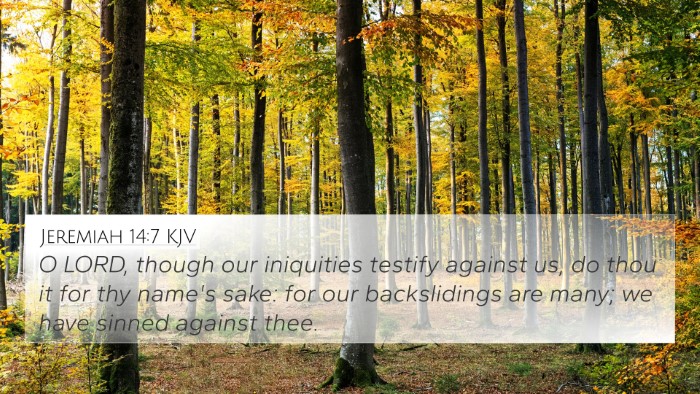 Jeremiah 14:7 (KJV) »
Jeremiah 14:7 (KJV) »
O LORD, though our iniquities testify against us, do thou it for thy name's sake: for our backslidings are many; we have sinned against thee.
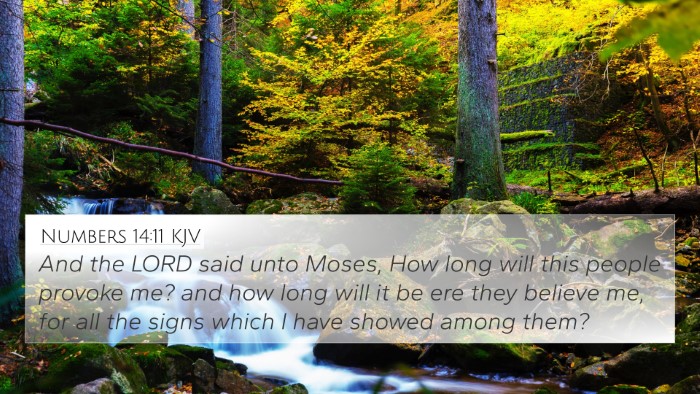 Numbers 14:11 (KJV) »
Numbers 14:11 (KJV) »
And the LORD said unto Moses, How long will this people provoke me? and how long will it be ere they believe me, for all the signs which I have showed among them?
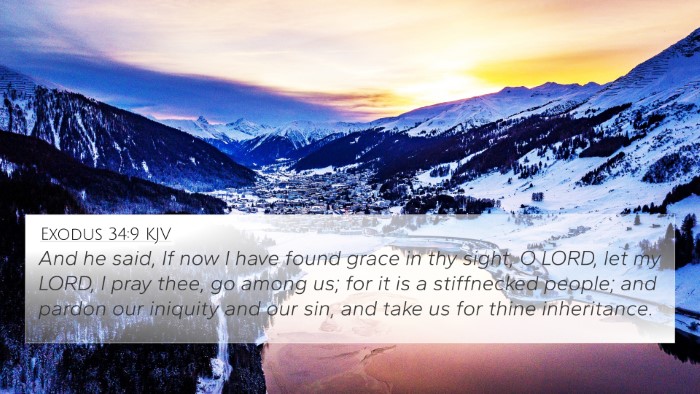 Exodus 34:9 (KJV) »
Exodus 34:9 (KJV) »
And he said, If now I have found grace in thy sight, O LORD, let my LORD, I pray thee, go among us; for it is a stiffnecked people; and pardon our iniquity and our sin, and take us for thine inheritance.
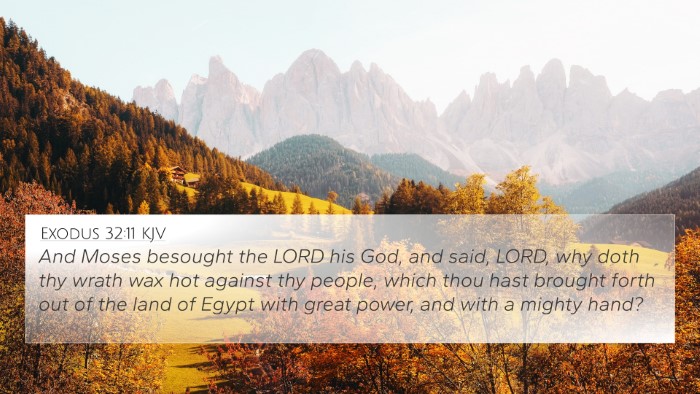 Exodus 32:11 (KJV) »
Exodus 32:11 (KJV) »
And Moses besought the LORD his God, and said, LORD, why doth thy wrath wax hot against thy people, which thou hast brought forth out of the land of Egypt with great power, and with a mighty hand?
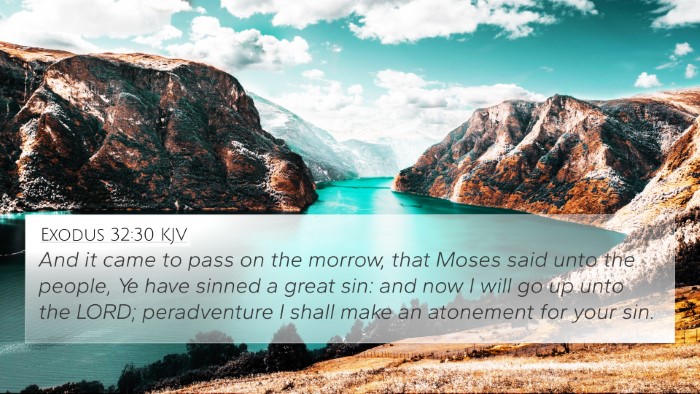 Exodus 32:30 (KJV) »
Exodus 32:30 (KJV) »
And it came to pass on the morrow, that Moses said unto the people, Ye have sinned a great sin: and now I will go up unto the LORD; peradventure I shall make an atonement for your sin.
